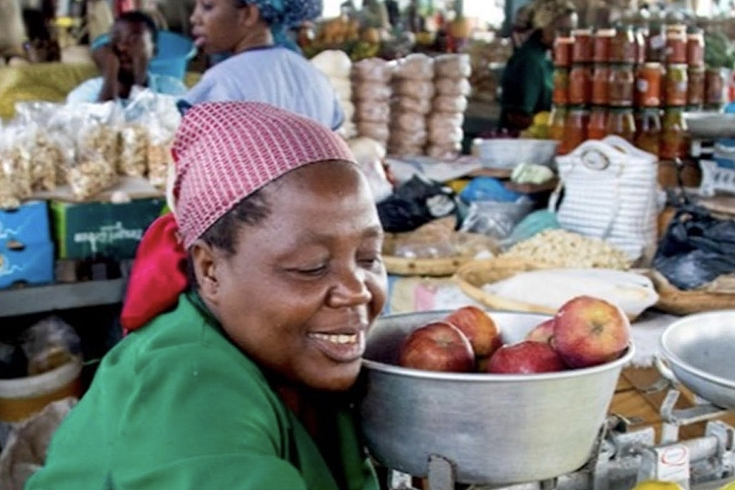Innovative „African Futures“ report
Reducing gender inequality to facilitate development

Cover image of the new report
ISS
The new report published on the African Futures platform, launched recently with an international panel discussion in Pretoria, presents key gender inequalities in Africa, progress made so far, and likely trends in a business-as-usual “Current Path” scenario forecast to 2043. It then models the impact of an ambitious but reasonable reduction in gender inequalities, in a “Gender scenario” which uses the progress made by other countries or regions at similar levels of development as a benchmark. The report further explores the hypothetic impact of an illustrative “Gender Equality scenario” of full gender equality by 2043, knowing that the latter is not practically achievable.
During the launch event, experts described the report as user-friendly, innovative, and ground-breaking in terms of its extensive forecasting related to Gender in Africa. They praised the systematic manner in which gender inequality was unpacked and voiced that the report should be valuable for policymakers and those working in the advocacy space alike.
Drawing on this comprehensive report, which includes a wealth of information and numerous interactive graphs and is truly worth sharing and quoting, we present some of its insights below:
Here are some key findings of the report:
- Despite progress in gender equality in Africa, for instance in education, there are persistent disparities, often shaped by cultural norms and discriminatory laws.
- African women are more likely to die from communicable diseases and nutritional deficiencies, bear most of the burden of unpaid care and domestic work, are disadvantaged in divorce and inheritance, have fewer opportunities to get loans, and limited access to productive resources. Gender inequality in employment is pervasive, and Africa is far from achieving women's equal and effective participation in political decision-making. Climate change worsens gender inequalities.
- Reducing gender gaps could significantly improve Africa’s prospects; it’s not only growth-promoting but also reduces poverty, improves human development, and accelerates demographic transition through lower fertility. Gender inequalities constitute a constraint and a drag on Africa's development.
- An ambitious but realistic reduction in gender inequalities sees the 2043 African economy being about US$259 billion (or 3.3%) larger than what is projected in the Current Path forecast in the same year. GDP per capita would increase by 5% and 53 million Africans would be lifted out of extreme poverty.
- The illustrative Gender Equality scenario emulates the impact of full equality by 2043, which would result in an economy that is US$1 trillion larger than the Current Path forecast. GDP per capita would be 12% higher and Africa would have 80 million fewer persons in extreme poverty.
The authors make specific policy recommendations, among them the following:
- Invest in free education and conditional cash transfers to poor households, and encourage and facilitate Science, Technology, Engineering and Maths programmes for women
- Roll out reproductive health and family planning services, reduce child marriage and teenage pregnancies
- Increase awareness for domestic violence, and ensure perpetrators are brought to boo
- Legal reforms must end discriminatory customary laws to open up women’s purchase of land. Improve access to agricultural inputs, new technologies and finance for female farmers.Increase female labour force participation and reduce wage gaps through removal of legal restrictions, and grow infrastructure investments in water, electricity, transport etc. to reduce unpaid domestic care burden
- Facilitate inclusion of women in politics – and include traditional and religious leaders in campaigns to overcome cultural norms hindering gender equality.

Entrepreneurship is important and needs to be facilitated
ISS
As the report says, “Gender inequalities are not inevitable in Africa. Concrete measures can be taken to eradicate them, if not, reduce them significantly, to advance the continent’s development.”
Find the insightful, evidence-based study with specific policy recommendations here:
Watch a recording of the nuanced debates with African expert panelists during the launch seminar here:
Subscribe to our Newsletter to receive event invitations and new publications via email - and follow us on Facebook and Twitter for news about our work.
